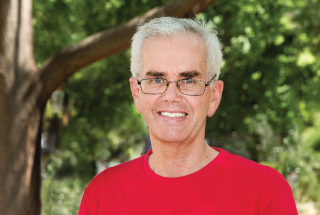Interests
In 2019 Henry convened a student choir called the “SWE Singers”. The idea is that students need to get up and away from their keyboards and do something different. The songs we sing are meant to be humourous, educational and fun and they all relate to software engineering and computer science. Henry is the main lyricist. The music arrangements have been done by Katie Cole who also coached and directed the choir rehearsals and performances. Here are some of our songs:
- This is Pachelbel’s canon. We sing its numeric intervals in binary!
- Joy of Compilation – This song is about coding. It is based on a traditional Australian folk tune.
- SWE Song – This song is about Software Engineering and Agile Processes
- Another performance of SWE Song
- Requirements! Requirements! – All software needs requirements!
- Domain Models
- Design Patterns
In 2020 Henry converted his songs to be played on the ukulele and delivered some streaming ukulele tutorials to students in his Software Engineering class. This has been his attempt to introduce some humour and light-heartedness into the delivery of online education during these stressful and anxious times of the covid19 pandemic. Some exemplars follow together with the ukulele sheet music!
- Java Compilation (a ukulele revisiting of Joy of Compilation)
- Ukulele sheet music for Java Compilation
- SWE Song
- Ukulele sheet music for SWE Song
- Requirements
- Ukulele sheet music for Requirements
- Domain Models
- Ukulele sheet music for Domain Models
Research
Biography
Henry is an Honorary Associate Professor in the ANU School of Computing. He is a computer scientist (virtual reality; e-Science; scientific software; human computer interaction; computer music) and has an earlier background in computational plasma physics for nuclear fusion research. He has a BSc Hons (1979) and Dip. Comp. Stud. (1981) from University of Melbourne and PhD from ANU (1987). He has held academic positions at ANU and at the Max Plank Institute in Garching, Germany. He has been a visiting researcher at the CIEMAT institute in Madrid, Spain, the National Institute for Fusion Science, in Nagoya, Japan, and at the Courant Institute, in New York, USA. He is co-inventor of the Wedge virtual reality theatre and co-author of the monograph Design Patterns for e-Science (Springer, 2007) which illustrates the use of software engineering approaches to scientific software. He was a 1997 recipient of the Krell Institute award for contributions to undergraduate computational engineering and science education and he established and directed the world’s first graduate education program in e-Science from 2000 to 2004.
